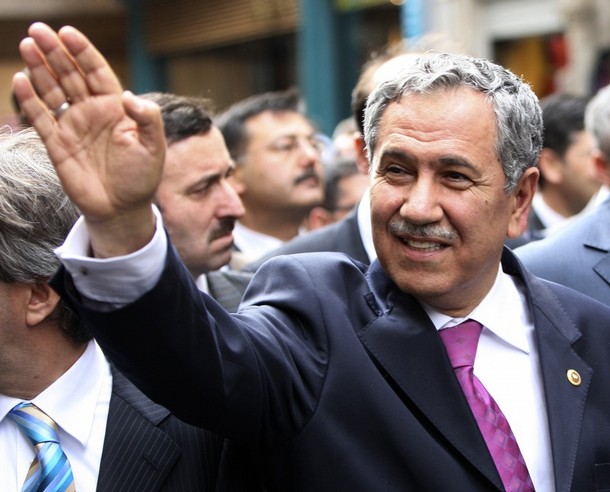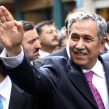
Erdogan Reshuffles the Turkish Cabinet
Publication: Eurasia Daily Monitor Volume: 6 Issue: 85
By:

On May 1, Turkish Prime Minister Recep Tayyip Erdogan announced major revisions in his cabinet. While some ministers retained their posts, eight were removed and nine new members were brought into the cabinet, with another seven assigned to different positions (Today’s Zaman, May 2). The poor showing of the Justice and Development Party (AKP) in the local elections, growing criticism toward the government’s handling of the global financial crisis and concerns about the performance of individual ministers had prompted the discussions on revisions within the cabinet (EDM, April 1).
After several weeks of speculation over Erdogan choice of new ministers, the announcement of the cabinet reshuffle sparked mixed reactions among political observers and opposition parties. Whereas some changes were expected, others came as a surprise. In revising the cabinet, Erdogan allegedly took into account President Gul’s preferences, reactions from the opposition and the expectations of the AKP’s grassroots support (Tercuman, May 3).
Of the ministers who were removed from the cabinet, the most remarkable names were Education Minister Huseyin Celik, Energy and Natural Resources Minister Hilmi Guler, Justice Minister Mehmet Ali Sahin and Minister of State Kursad Tuzmen. Although Erdogan argued that those who lost their posts were not being punished for the party’s failings, the exclusion of some ministers suggests that concerns over policy as well as other controversies had played a role in the cabinet reshuffle. By excluding Celik from the cabinet, for instance, despite his strong position within the party, Erdogan demonstrated his sensitivity to recent criticism.
Nonetheless, Erdogan was not completely swayed by external feedback while reshuffling his cabinet. He did not bow to pressure to remove other ministers -most notably the Culture Minister Ertugrul Gunay, who was criticized by the opposition and the AKP’s supporters. Gunay had occasionally contradicted the government’s stance on critical issues and failed to satisfy the party grassroots’ expectations. Similarly, Erdogan kept the Deputy Prime Minister Cemil Cicek, viewed by reformists as the stumbling block to the further democratization of the country given his nationalist views. Likewise, although the minister responsible for the treasury, Mehmet Simsek, had been under fire from business circles for his mismanagement of the economy, Erdogan did not exclude Simsek from his economic team; instead naming him as the Finance Minister to replace Kemal Unakitan -whose health necessitated the change.
In another bold move, Erdogan appointed Bulent Arinc as one of his deputy prime ministers. Arinc, one of the three leading founders of the AKP -along with Erdogan and Gul- served as the parliamentary speaker during the AKP’s first term between 2002 and 2007. Because of his alleged commitment to the party’s past Islamist ideals, Arinc had always been at the center of discussions and his controversial statements on secularism as well as his criticism of the military occasionally raised tension within Turkish politics. Arinc was not given any active government post during the AKP’s second term since 2007 partly due to Erdogan’s attempt to avoid political polemics and allay the concerns of secularists. Now that Arinc is in the cabinet and will attend the meetings of the National Security Council, his attitudes towards the military will come under greater scrutiny. He said he had reflected on his shortcomings and mistakes over the past two years, but he does not see any need to change either his views or style (Cihan Haber Ajansi, May 2).
Another surprising choice was Professor Ahmet Davutoglu who was appointed as the Foreign Minister from outside parliament. Davutoglu had been serving as the chief advisor to the Prime Minister in foreign affairs and is known as the leading figure behind Turkey’s new foreign policy doctrine. He takes over from Ali Babacan, who was named as the new minister for the economy. Babacan was considered by many to be unfit to handle Turkey’s heavy foreign policy agenda. On the other hand, in addition to serving as the intellectual architect of the AKP’s foreign policy, Davutoglu has been personally involved in the day-to-day conduct of Turkey’s foreign relations -particularly in the Middle East (Aksam, May 3). Davutoglu’s appointment had therefore been expected and was welcomed by many in Ankara, since it might promote more effective management of the foreign ministry, by making him responsible for the policies he has helped to formulate.
On May 2 Davutoglu outlined the broad parameters of his perspectives on foreign policy. He emphasized that he will continue his work toward making Turkey an influential power that can set the agenda in the surrounding regions. "We will move from a crisis-oriented approach to a vision-oriented approach," Davutoglu added (Anadolu Ajansi, May 2).
Erdogan moved Babacan to a position for which he might be more suited. The government had come under criticism for its failure to stop the rapid contraction of the Turkish economy as a result of the global financial crisis. Earlier, Erdogan had announced that he would restructure the economy under a more effective administration. By tasking Babacan with overseeing all economic and financial institutions including the state banks, making him a type of "super minister," Erdogan has expressed his desire to manage the economy more effectively (Star, May 2).
It is too early to assess the implications of the revised cabinet for Turkish politics, given that different considerations played a role in the selection of ministers. The newly appointed ministers promised that they will implement new projects (www.ntvmsnbc.com, May 3). For some analysts, the reshuffling might indeed herald a new era and bring about more effective governance (Radikal, May 3). For others, there are no grounds to expect a shift in the AKP’s policies, and on the contrary the political orientation of the new cabinet members suggests that the AKP might revert back to its Islamist past (Hurriyet, May 2, Birgun, May 3).




